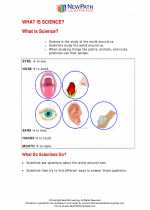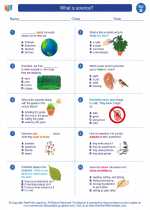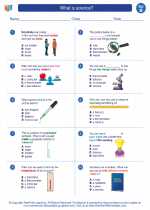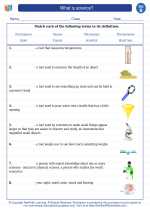Structure of DNA
The DNA molecule is composed of two strands that coil around each other to form a double helix. Each strand is made up of a sugar-phosphate backbone with nucleotide bases attached to it. The four types of nucleotide bases found in DNA are adenine (A), thymine (T), cytosine (C), and guanine (G).
Function of DNA
DNA contains the genetic instructions that determine the characteristics of an organism. It carries the information needed for an organism to develop, survive, and reproduce. The sequence of nucleotide bases in DNA serves as a code that is used to create proteins and carry out various functions within the cell.
Replication of DNA
Before a cell divides, its DNA needs to be replicated so that each new cell will have a complete set of genetic instructions. This process involves the unwinding of the DNA double helix and the synthesis of new complementary strands based on the original DNA strands.
Study Guide for DNA
.◂Science Worksheets and Study Guides Second Grade. What is science?

 Worksheet/Answer key
Worksheet/Answer key
 Worksheet/Answer key
Worksheet/Answer key
 Worksheet/Answer key
Worksheet/Answer key
 Vocabulary/Answer key
Vocabulary/Answer key
